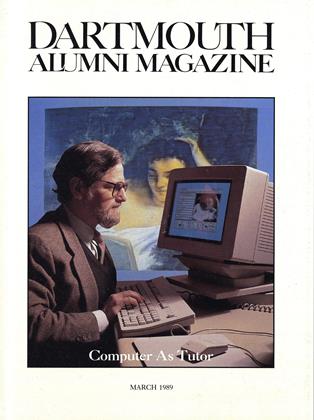Heinz R. Pagels, The Cosmic Code: Quantum Physics as the Language of Nature (Bantam). Little mathematical or scientific background is required to read this historical account of how quantum theory forces us to reevaluate the nature of reality.
Richard Morris, The Nature of Reality (McGraw Hill). Also writing for the layman, Morris discusses the makeup of the universe, how it got to be the way it is —from the Big Bang to its present state—and the mysteries of quantum reality.
P.C.W. Davies and J.R. Brown, eds. The Ghost in the Atom (Cambridge University Press). Most of this book consists of interviews with leading physicists originally broadcast on BBC who have contributed to our understanding of quantum reality.
Nick Herbert, Quantum Reality (Anchor/Doubleday). Although nonmathematical, this investigation of the meaning of quantum theory is a bit heavier going than the books above. Herbert examines the possibility of super-luminal communication sending information faster than the speed of light.
Alistair Rae, Quantum Physics: Illusion or Reality? (Cambridge University Press). Writing for those with some elementary physics and mathematics, Rae discusses the basic concepts and interpretive problems of quantum physics.
David Bohm Wholeness and the Implicate Order (Routledge and Kegan Paul). In a very philosophical treatise, physicist Bohm introduces the concept of implicate order, the notion that any independent element of reality contains within it the totality of existence. He uses this concept to relate consciousness to matter. This book is not for the weak of heart or mind.
Henry J. Folse The Philosophy of Neils Bohr: The Framework of Complementarity (North-Holland). Folse traces the development of Bohr's Principle of Complementarity and describes the arguments Bohr had with Einstein over the completeness of quantum theory as a description of reality. The book assumes some familiarity with quantum physics, so it is really for the serious philosopher or historian of science.
 View Full Issue
View Full Issue
More From This Issue
-
 Feature
FeatureFrom Dartmouth Comes the World's First Love Story
March 1989 By David Birney '61 -
 Cover Story
Cover StoryTeacher in the Dorm Room
March 1989 By Paul Susca '80 -
 Feature
FeatureOn a Freshman Trip, the Destination Is Community
March 1989 By Jay Heinrichs -
 Feature
FeatureWhy I Traded Basketball for Biology
March 1989 By Liz Walter '89 -
 Article
ArticleTHE NATURE OF REALITY
March 1989 By Bruce Pipes, Karen Endicott -
 Article
ArticleOROZCO'S LEGACY
March 1989
Article
-
 Article
ArticleTHE MASSACHUSETTS GROUP OF DORMITORIES.
April, 1912 -
 Article
ArticlePRESIDENT HOPKINS' ENGAGEMENTS
February 1920 -
 Article
ArticleProject to Help the Poor.
MARCH 1966 -
 Article
ArticleThe Faculty
February 1951 By HAROLD L. BOND '42 -
 Article
ArticleMan in the Flying Machine
November 1975 By M.B.R. -
 Article
ArticleAlumni Fund Annual Report
November 1974 By Norman E. McCulloch, Jr. '50

